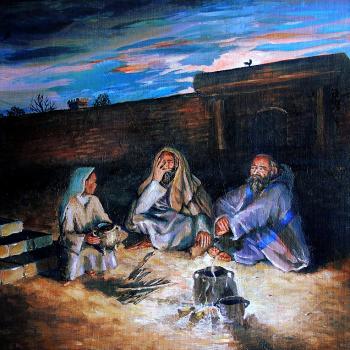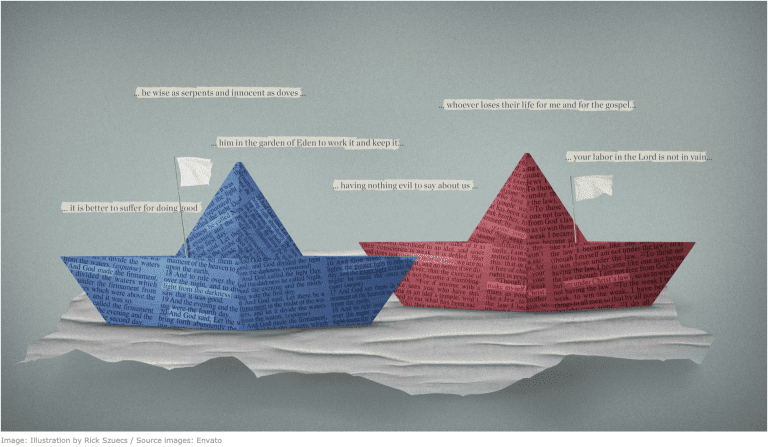
A few years ago, an author asked me whether I would read the draft of his chapter on the gospel. After helping him through a few drafts, he refused to take out a line that I commented on every time.
In essence, he claimed that John 3:16 was the best summary of the gospel in the Bible.
I told him plainly that “God loves you” was not the “gospel,” as Paul, Peter, and others understood and proclaimed it in their original context.
(This post is part of a series introducing my new book One Gospel for All Nations: A Practical Approach to Biblical Contextualization. For other posts in the series, click here.)
“Are you denying God’s love?”
Why would I say something so utterly contrary to evangelical thinking? I assure you that I am not simply trying to be provocative. That is a waste of time. What I do care about is proclaiming the gospel the Bible understands the “gospel.” We do not want to compromise the gospel by settling for what is merely true.
Let me answer a few questions before continuing.
Does God love the nations? Yes.
Is God’s love essential to the gospel being the gospel? Yes.
Without God’s love, is there a gospel? No.
So, what’s the problem?
The “gospel,” properly speaking, is not the message that God loves you. The message is entails that, but they are not equivalent. The gospel announces that God has made Jesus king of the entire world. The reason that this royal declaration is reason for rejoicing is because God perfectly loves the world. We would not call it good news if a tyrant reigned instead of Christ.
God’s love makes the gospel possible. Yet, it is not the “gospel.”
One small clue to a big oversight

Doing word searches don’t settle most theological questions. However, they can be instructive and cause us to ask better questions. For example, try doing a search for passages with the words for “gospel” (εὐαγγέλιον) or “evangelize” (εὐαγγελίζω) that are directly linked to God’s “love” (which typically translates ἀγάπη).
You won’t find any.
I already know that some people will accuse me of committing a “word-thing fallacy,” whereby one only sees a thing if a certain word appears. That is not at all what I’m suggesting. Rather, my point is simply this:
If the “gospel” = “God loves the world,” then we would expect to see at least some sort of correlation between the two ideas.
Just something to consider . . . .
The King loves us
As I explain in One Gospel for All Nations, the gospel in its ancient context routinely carried royal connotations. It was standard verbiage for the announcement of a king’s victory over his enemies. Naturally, rulers (including Caesar) would send out messengers to preach their “gospel” about how this new king would bring them peace and security.
Some people have only partially grasped what the word “gospel” meant in its original context. They know that “gospel” means “good news.” However, the logic doesn’t work backwards. Although the gospel is indeed “good news,” that doesn’t mean anything we call “good news” is equivalent to the “gospel.”
Of course, it’s fantastic news that God loves the nations!
Yet, that doesn’t make it “the gospel” as Jesus, Paul and the earliest Christians preached it. The Roman authorities did not persecute them because they believed in a benign deity. Rather, people rightly understood that the Christians were preaching another king––Jesus!
Observe what happened in Thessalonica:
And Paul went in, as was his custom, and on three Sabbath days he reasoned with them from the Scriptures, explaining and proving that it was necessary for the Christ to suffer and to rise from the dead, and saying, “This Jesus, whom I proclaim to you, is the Christ” (Acts 17:2–3).
What was the response?
. . . they dragged Jason and some of the brothers before the city authorities, shouting, “These men who have turned the world upside down have come here also, and Jason has received them, and they are all acting against the decrees of Caesar, saying that there is another king, Jesus” (Acts 17:6–7).
They indeed preached another king, but these rioters did not grasp the nature of Christ’s kingdom. They were not at all playing the usual political games of the world.
In a coming post, I’ll try offering a more positive suggestion about how God’s love is tied up in the gospel. I certainly am not forging an either-or between God’s love and the gospel.
Yet, if we don’t understand how God’s love fits within the larger picture of the Bible, we risk distorting the gospel. We can easily privatize or psychologize the message that is for the entire world.













